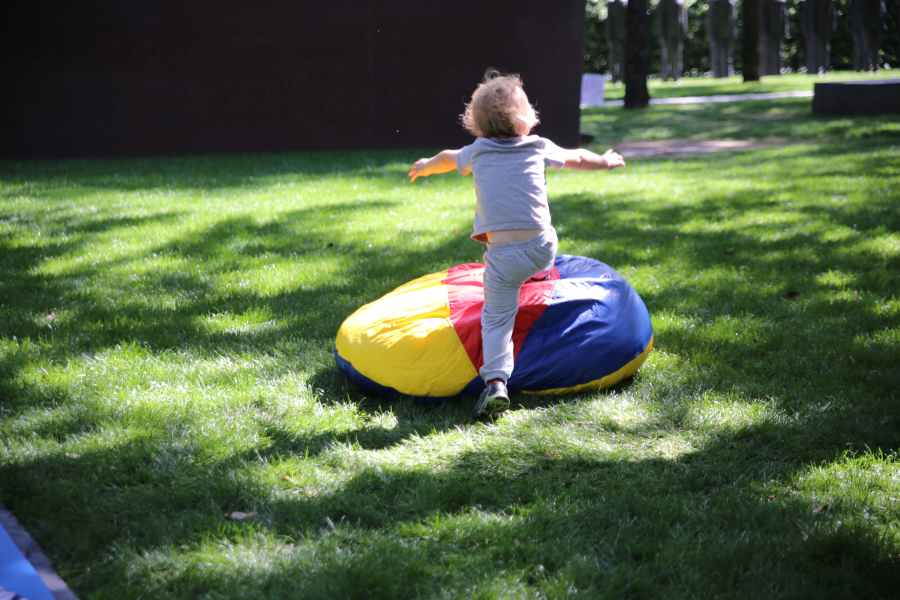Planning Sensory-Friendly Events: Family Perspectives on Factors that Matter

Families with children with autism frequently attend events that are advertised as "Sensory-Friendly." Planning these events can be a costly and labor-intensive experience for the community venue hosting and staffing them. Previous research with families in the Dallas area (Fletcher, 2021, unpublished) has provided researchers with descriptive and open-ended question responses regarding family preferences answering WHAT families want. This research, intended as the second phase of a mixed-methods sequential explanatory (quant to qual) design (Iankova, Creswell, & Stick, 2006) that is designed to understand WHY they want these things, and to develop themes leading to planning algorithms that museum and other venue planners can use in event planning, and to determine ways occupational therapists and other community partners can help them create evidence-based experiences for people with autism. To achieve this goal, researchers propose to interview key informants asking their thoughts and experiences related to family survey findings.
Investigators at TWU
Partners and Affiliates
- Dallas Museum of Art
- Nasher Sculpture Center
- Dallas Zoo
- Frontiers of Flight Museum
- Eric Jonsson Public Library
Graduate Assistants
- Edgar Pizarro
- Alicia Chen
- Jason Tran
- Megan Tripp
- Ashley Norris
Grant Funding and Agency Number
- Texas Higher Education Coordinating Board: Autism Grant Program – Innovative Treatment Models, $267,477
Publications
Manuscripts:
Fletcher T., Garcia, N., & Marlin, A. (in preparation). Navigating autism research: Using expert help, autism guidelines, and ethical review.
Fletcher, T., Chen, A., & Pizarro, E. (in review). Promoting positive mental health: Calming neurodiverse children’s summer camp jitters.
Fletcher, T., Chen, A., Norris, A., Pizarro, E., Tran, J., & Tripp, M. (in preparation). Strategies and guidelines for sensory havens in sensory and autism-friendly events.
Fletcher, T., Chen, A., Norris, A., Pizarro, E., Tran, J., & Tripp, M. (in preparation). Meeting neurodiverse children wherever they are with mobile sensory havens.
Book Chapters:
Pingale, V. & Fletcher, T. (2022). Chapter 29. Assessing and intervening with children with sensory motor impairment. In Miller, D., Marcle, D., Bedford C., & Gettmen, J. (Eds.). Best practices in school neuropsychology: Guidelines for effective practice, assessment, and evidence-based intervention, 2nd ed. Wiley & Sons. ISBN:1119790530
Blake, A. & Fletcher, T. (in press). Action research. In Miller, D. & Love, A. An introductory guide to qualitative research in art museums.
Fletcher, T., Smith, A., Wiskera, E., Wilbur, L. & Chen, F. (in preparation). Success on the spectrum: Planning for neurodiverse museum audiences. American Alliance of Museums.
Refereed:
Fletcher, T., Wiskera. E., Wilbur, L., & Garcia, N. (2021). The sensory totes programme: Sensory-friendly autism program innovations designed to meet COVID-19 challenges. World Federation of Occupational Therapists Bulletin.1-9. https://doi.org/10.1080/14473828.2021.1943868
Fletcher, T., Anderson-Seidens, J., Wagner, H., Linyard, M., & Nicolette, E. (2019). Caregivers' perceptions of barriers and supports for children with sensory processing disorders. Australian Occupational Therapy Journal, 66(5), 617-626, doi: 10.1111/1440-1630.12601.
Pingale, V., Fletcher, T., & Candler, C. (2019). The effects of sensory diets on children's classroom behaviors. Journal of Occupational Therapy, Schools, and Early Intervention: Innovations in Practice, Theory, and Research, 12(2), 225-238, doi: 10.1080/19411243.2019.1592054.
Fletcher, T., Sherman, M. L., Lawrence, J. M., & Parrish, J. L. (2019). Serving theatre-going children with special needs: Implications for interprofessional collaboration. Youth Theatre Journal, 1-12, doi: 10.1080/08929092.2019.1582445.
Piller, A., Fletcher, T., Pfeiffer, B., & Pickens, N. (2018). Construct validity of the Participation and Sensory Environment Questionnaire – Teacher Version. Assessment for Effective Intervention, 44(3), 212-224, doi: 10.1177/1534508418758363.
Fletcher, T., Eckberg, J., & Blake, A. B. (2018). Fine arts museums and occupational therapy collaborations promote inclusion for children with autism spectrum disorder. CultureWork, 22(2).
Fletcher, T. S., Blake, A. B., & Shelffo, K. E. (2017). Can sensory gallery guides for children with sensory processing challenges improve their museum experience? Journal of Museum Education, 43(1), 66-77, doi: 10.1080/10598650.2017.1407915.
Fletcher, T., Parrish, J., & Sherman, M. L. (2017). Exploring how live theaters provide access to children with special needs: Quantitative analysis. Physical & Occupational Therapy in Pediatrics: A Quarterly Journal of Developmental Therapy, 38(2), 157-167, doi: 10.1080/01942638.2017.1368056.
Kulik, T. K., & Fletcher, T. S. (2016). Considering the museum experience of children with autism. Curator: The Museum Experience, 59(1), 1-12, doi: doi/10.1111/cura.12143/epdf.
Antonetti, A., & Fletcher, T. S. (2016). How parents perceive participation in museum activities: A comparison between parents of children with and without autism spectrum disorders. Inclusion, 4(2), 109-119, doi: 10.1352/2326-6988-4.2.109.
Editor Refereed:
Fletcher, T. (2018). Contributing to sensory-friendly events from A to Z. OT Practice Magazine, 23(7), 24-25.
Non-Refereed:
Fletcher, T. (2016). How To manage sensory overload during the holidays. The Art of Autism.
Fletcher, T. (2016). How to keep the holidays from overloading the senses of autistic children. Dallas News.
Fletcher, T. (2014). Supporting individuals with special needs at the Dallas Museum of Art. OT Practice Magazine, 19 (5), 14.
Resources
Page last updated 7:29 AM, May 31, 2023